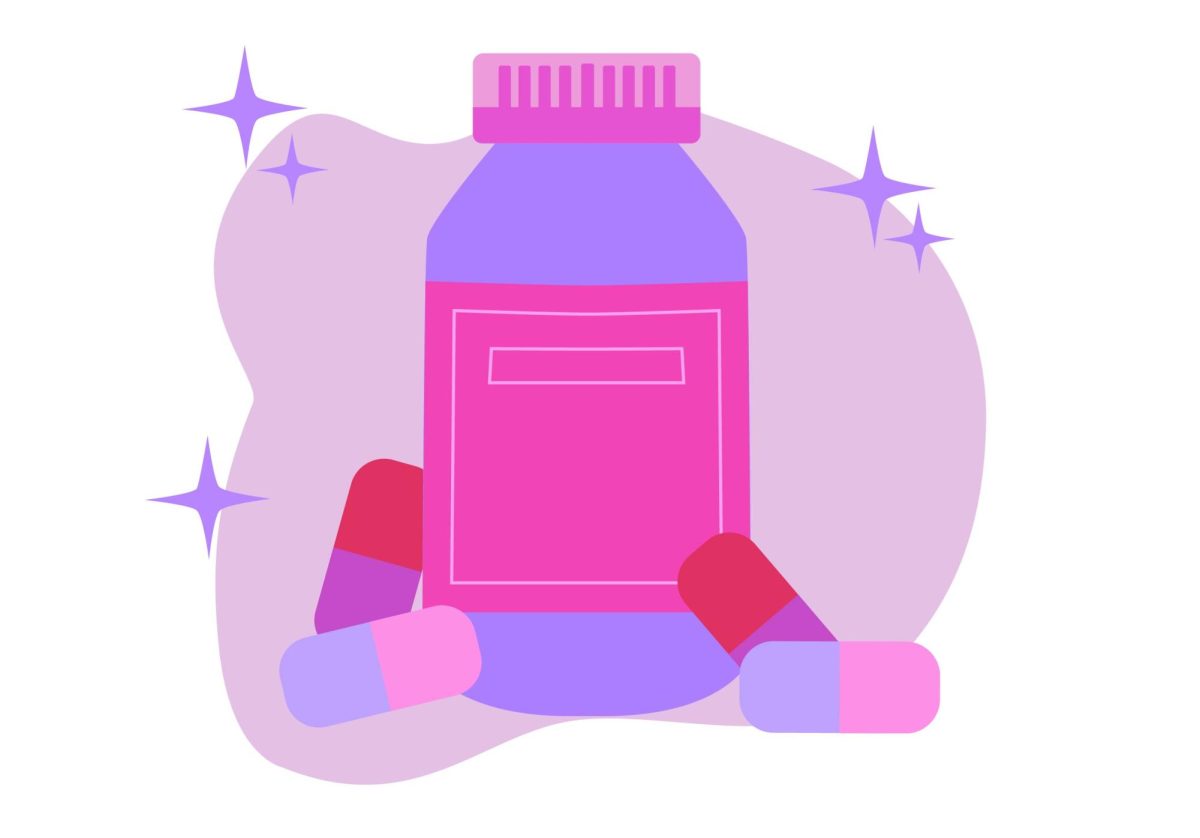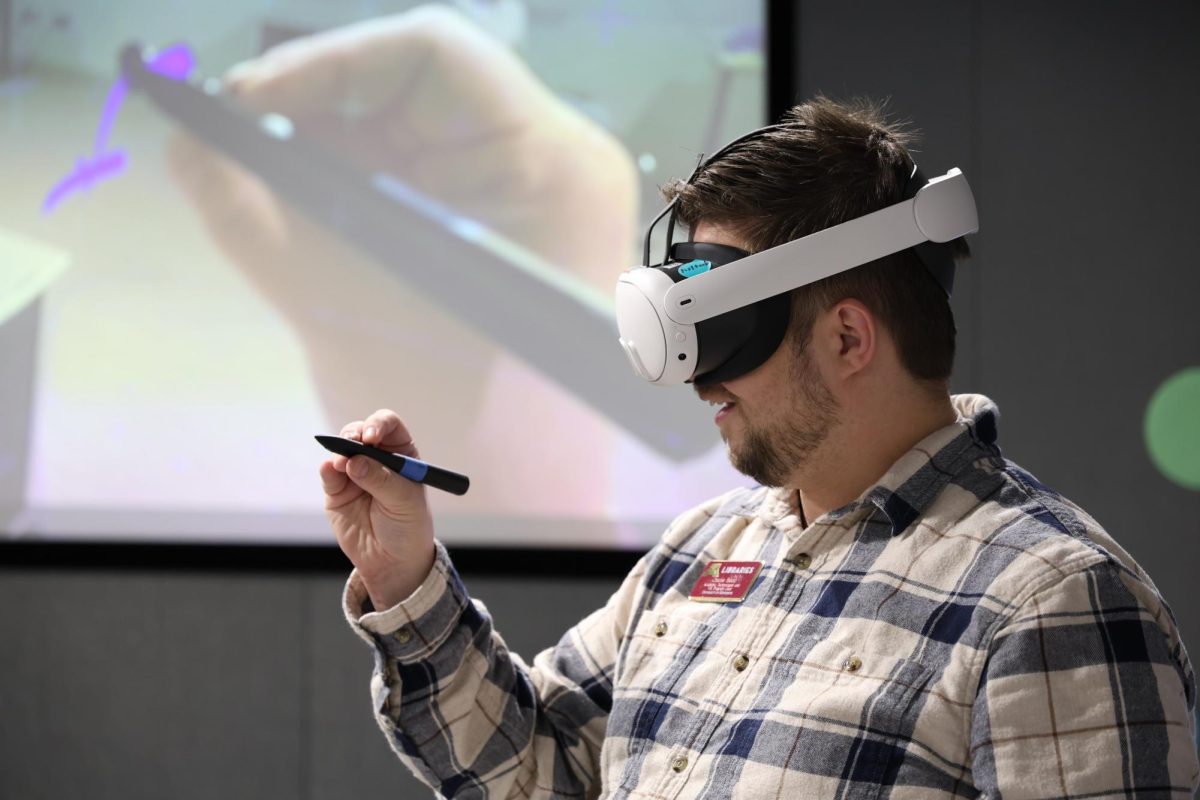A study conducted in 2021 by the American College of Clinical Pharmacy found the use of medications by college students has roughly doubled across all medications.
The use of antidepressants rose from 8% in 2007 to 15% in 2018-19, according to the study. Anti-anxiety medication usage has increased from 3% to 7.6%, and mood stabilizer usage rose from 0.8% to 2%.
The study also found there has been an approximate 20% increase in the number of students who were prescribed psychiatric medication by their primary care providers since 2007. The use of mental health medication without a prescription has decreased from 11.9% in 2007 to 7.7% in 2018-19.
According to Jessica Cici, the medical director of Child and Adolescent Psychiatry at M Health Fairview, young adults between the ages of 18 and 25 have the highest chances of developing depression, and there are multiple reasons why they seek medication.
“I think we can come back to the impact of the pandemic on young adults and having to live through that,” Cici said. “I think what was happening at that time was just a lot of fear and anxiety about the future.”
Cici said racial inequities and problems like climate change have a significant impact on young adults who worry about their futures.
Luke Wittner, a fourth-year student, said he started seeking medication for anxiety and depression in the fall of 2020.
“I didn’t want to start it at all, but nothing else was really working for me, so starting medication was a last-ditch effort for me to try and fix it,” Wittner said.
Wittner has changed medications four times in the past four years to try to find the right fit.
“Every medication I’ve taken has helped me, I am just trying to find the one that has the least amount of side effects,” Wittner said.
According to Cici, some people are hesitant to start medication due to a fear of side effects and whether they are going to be able to tolerate them.
“Under the close supervision of a doctor, medications are very safe,” Cici said. “The most common side effects will be headaches and stomachaches that typically resolve after a couple of weeks.”
Providers will also watch for an increase in suicidality, which occurs in less than 2% of individuals taking mental health medication, Cici said.
“I’ve definitely experienced a lot less mental fog since starting the medication,” Wittner said. “I think it’s doing great work. If you saw me four months ago, I would have been a blubbering mess right now.”
According to Cecilia Bloomquist, a psychotherapist at Boynton Health, the stigma surrounding mental health is a barrier to care.
“I think there’s a lot of people that don’t seek care or avoid care because of fear of what they would look or feel like,” Bloomquist said. “They especially worry about how people would judge them if they were to have a mental health diagnosis.”
According to Bloomquist, 27.6% of University students now report taking medication for a mental health condition. This is up from 12.6% in 2015, according to Boynton’s College Student Health Survey.
“People are understanding that feeling depressed is not how it used to be, and there is a way to treat it,” Bloomquist said. “There is more awareness and more people seeking out treatment.”
Bloomquist said she tries to talk to her patients and help them gain insight into how knowing and being aware of what is going on can help them make sense of their experience.
According to Cici, depression and anxiety are medical illnesses, and treatments for them can vary.
“It’s an illness of one of the organs in your body, your brain,” Cici said. “High blood pressure, hypertension, diabetes — these are medical illnesses for which you get treatment affecting an organ in your body.”
Ashley Sudeta, a third-year student, said she took medication for her mental health but did not notice any changes, so she stopped.
“I never felt different, and my mom thinks it actually made things worse for me,” Sudeta said. “It just really didn’t give me any benefits.”
Sudeta said she started taking medication for mental health due to sporadic depressive episodes she experienced throughout her life.
“I wouldn’t say I had a negative experience with the medication, it was more neutral,” Sudeta said. “People shouldn’t give up just because something doesn’t work for them, different things work for different people.”
Sudeta started therapy and has gotten more involved on campus since stopping her medication.
“Connecting with others and talking to my therapist about my issues instead of tampering them down has helped me a lot,” Sudeta said.
Cici said one challenge that remains in the current landscape of mental health treatment is that not everyone responds to antidepressant medication.
“As we continue to make scientific advances to understand the neurobiology of these illnesses, we will have medications and treatments that are better targeted to be specific and lead to improvements,” Cici said.
Mental health services are available at Boynton Health and Student Counseling Services.














